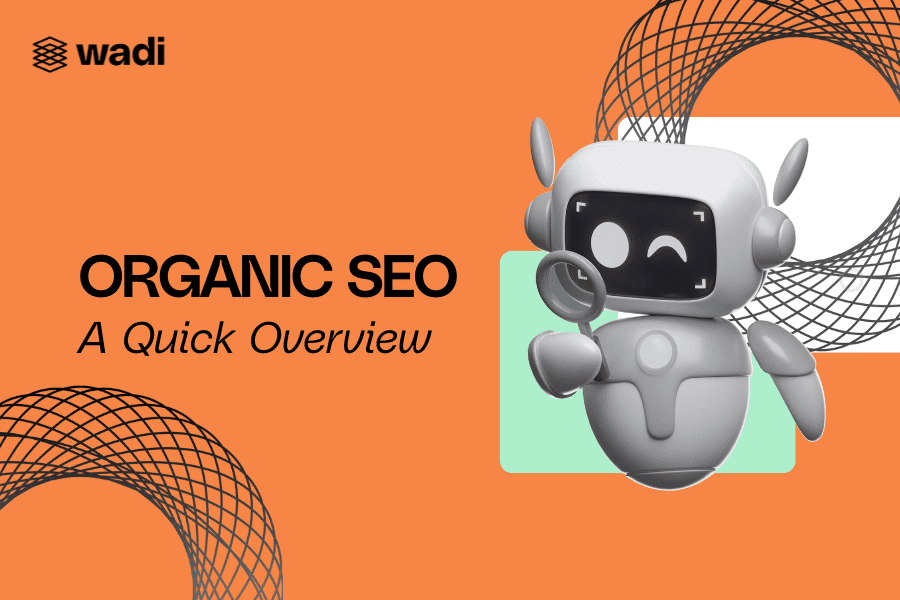Table of Contents
ToggleWhat You’ll Learn:
- An overview of organic SEO
- The relevance and evolution of SEO
- The impact of digital advertising restrictions on SEO
Organic SEO: A Quick Overview
In the world of Search Engine Optimization (SEO), organic SEO is the clear champion of website traffic. Organic search still accounts for more than half of all website visitors, particularly in B2C businesses.
What is Organic SEO? It pertains to methods or strategies used to attain an increased ranking on search engine results pages (SERPS). Organic SEO refers to obtaining a natural placement and getting results that are done through various proven strategies such as optimizing the web page by writing high-quality and highly-relevant content, boosting keywords, incorporating meta tags, and backlinking. Organic SEO is a low-cost investment because you don’t pay for advertising but instead invest in creating excellent content.
Why SEO Optimization is Still Relevant
The search engine world evolves rapidly, but the relevance of SEO remains constant. Despite the ever-changing landscape, SEO continues to be a critical component of digital marketing. In recent years, the integration of artificial intelligence (AI) and machine learning into search algorithms has further enhanced the importance of the effective use of SEO. These technologies help search engines understand user intent better, making high-quality, relevant content more crucial than ever.
When you create high-quality, relevant content that aligns with what your audience is actively searching for, organic SEO becomes a powerful driver of qualified traffic. Content that answers real questions, solves problems, or provides value builds trust over time. Matching keywords to search intent ensures your content is discoverable at every stage of the buyer journey, especially as AI-driven search tools prioritize helpful, intent-driven content. Visitors who find you through organic search are typically more engaged, spend more time on site, and are more likely to convert or return. That’s why organic SEO remains a reliable source of long-term growth and customer retention.

Here is one very real and timely example of why SEO will never die. Organic content continues to perform across both traditional search engines and emerging AI tools like ChatGPT and Perplexity, which often rely on high-quality, structured website content to generate responses.
Top 3 Tips to Optimize Your Website for Organic Search Today
- Focus on originality: The age of repetitive, formulaic content is over. AI-powered search engines are getting smarter at delivering precise answers, which means content that merely scratches the surface no longer stands out. Shift your strategy toward unique insights, original research, and expert commentary that AI can’t replicate.
- Go beyond the funnel: Today’s SEO isn’t just about converting customers – it’s about engaging them earlier in their journey. Develop content that speaks to the questions and challenges potential customers have months before they make a purchase decision. This builds long-term trust and brand loyalty.
- Shift your metrics: Forget focusing solely on clicks and conversions. Instead, look at how your content influences brand perception and audience engagement. Measure impact earlier in the customer journey, and reconsider old attribution models.
Highlighting Examples of SEO Resilience
In 2024 and 2025, shifts in privacy regulations, the deprecation of third-party cookies, and the rise of GA4 have reshaped how marketers approach digital strategy. While paid media continues to play a key role, organic SEO has become even more valuable as a consistent, long-term channel for visibility and growth. It complements paid efforts by building trust, supporting discoverability, and adapting well to AI-powered search behavior.
Importance of Working with a Trusted Digital Agency
Creating an organic SEO campaign or any other digital marketing campaign is not an easy task. It requires expertise and extensive knowledge. If you want the best for your website’s SEO ranking or if you want to amplify your digital advertising strategies, getting your organic SEO services from a reputable and highly recommended digital agency is essential. When it comes to a B2B marketing agency that delivers results and knows what the client needs, one trusted expert is Wadi Digital. The global client portfolio of this renowned digital agency is impressive and wide-ranging. They bring high-quality, market-qualified leads through their three major digital marketing services: Pay-Per-Click, SEO, and Inbound Marketing.
Key Takeaways
- Organic SEO remains vital for consistent, long-term visibility
- High-quality, intent-driven content is essential in the AI era
- SEO complements paid media, enhancing overall discoverability
- Focus on building trust, driving traffic, and adapting to search evolution
FAQs:
How long does it take to see results from organic SEO?
Results from organic SEO efforts can vary, but typically it takes several months to start seeing significant improvements in search engine rankings and traffic. It requires consistent effort and quality content creation.
What are the most important factors for successful organic SEO?
Key factors include high-quality content, relevant keywords, proper meta tags, a well-structured website, mobile-friendliness, and authoritative backlinks. Regularly updating and optimizing these elements is crucial.
How does organic SEO benefit my business in the long term?
Organic SEO helps build a strong online presence, increases brand visibility, and drives consistent, high-quality traffic to your website. Over time, it establishes trust and credibility with your audience, leading to better customer retention and conversion rates.
What are some common mistakes to avoid in organic SEO?
Common mistakes include keyword stuffing, neglecting mobile optimization, ignoring user experience, not updating content regularly, and using low-quality backlinks. Avoiding these can help maintain a strong SEO performance.






